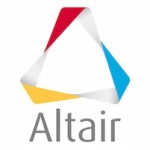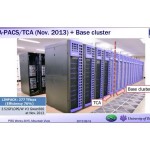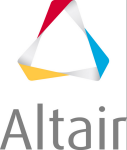This week at SC15, Altair announced today it will provide an open source licensing option for its PBS Professional HPC workload manager. Scheduled to be released to the open source community in mid-2016, PBS Pro will become available under two different licensing options for commercial installations and as an Open Source Initiative compliant version. The decision includes working closely with Intel and the Linux Foundation’s OpenHPC Collaborative Project to integrate the open source version of PBS Pro.
Altair Collaborates with Intel to Integrate PBS Pro with OpenHPC Software Stack
Case Study: PBS Pro on a Large Scale Scientific GPU Cluster
Professor Taisuke Boku from the University of Tsukuba presented this talk at the PBS User Group. “We have been operating a large scale GPU cluster HA-PACS with 332 computation nodes equipped with 1,328 GPUs managed by PBS Professional scheduler. The users are spread out across a wide variety of computational science fields with widely distributed resource sizes from single node to full-scale parallel processing. There are also several categories of user groups with paid and free scientific projects. It is a challenging operation of such a large system keeping high system utilization rate as well as keeping fairness over these user groups. We have successfully been keeping over 85%-90% of job utilization under multiple constraints.”
Altair Moves forward with PBS Pro 13 at ISC 2015
In this video from ISC 2015, Bill Nitzberg from Altair describes why PBS Professional 13.0 is the biggest release yet for the company. “The industry needs to accomplish a lot in the coming years to deliver a working, useful exascale machine. PBS Pro is only one piece of the puzzle… but it’s an important piece. Job scheduling and workload management are core capabilities – a “must have” for every HPC system – ensuring HPC goals are met by enforcing site-specific use policies, enabling users to focus on science and engineering rather than IT, and optimizing utilization (of hardware, licenses, and power) to minimize waste.”
Altair Renews OEM Agreement with SGI
Today Altair announced that SGI has renewed its original equipment manufacturer (OEM) agreement naming PBS Professional as SGI’s workload manager and job scheduler with global support provided by Altair.
Trends in HPC Leading to Exascale
Over at the Altair Blog, Bill Nitzberg has started a series of posts looking at the road to Exascale. He starts by looking back at the trends that have lead us to this point, concluding that Exascale infrastructure will require advances in four areas: scale, speed, resilience, and power management.
Interview: PBS Pro 13 is Biggest Release Ever for Altair
“The industry needs to accomplish a lot in the coming years to deliver a working, useful exascale machine. PBS Pro is only one piece of the puzzle… but it’s an important piece. Job scheduling and workload management are core capabilities – a “must have” for every HPC system – ensuring HPC goals are met by enforcing site-specific use policies, enabling users to focus on science and engineering rather than IT, and optimizing utilization (of hardware, licenses, and power) to minimize waste.”
Altair Launches PBS Pro 13
Today Altair announced the general availability of PBS Professional 13.0, the latest version of the market-leading software product for high-performance computing workload management and job scheduling on clusters and supercomputers.
Interview: Happy Sithole on Workload Management at CHPC
In the video interview shown below, Sithole describes how CHPC is on the fast track to acquire over a Petaflop of computing power in the next year to meet the demands of its regional scientists and engineers. That represents a daunting task for system management, and CHPC is already using PBS Professional software from Altair to keep their systems systems fully utilized.
Helping Scientists with System Management Software
In this special guest feature from Scientific Computing World, Tom Wilkie writes that while end-user scientists and engineers fear the complexity of running jobs in HPC, there are software toolkits available to help.










